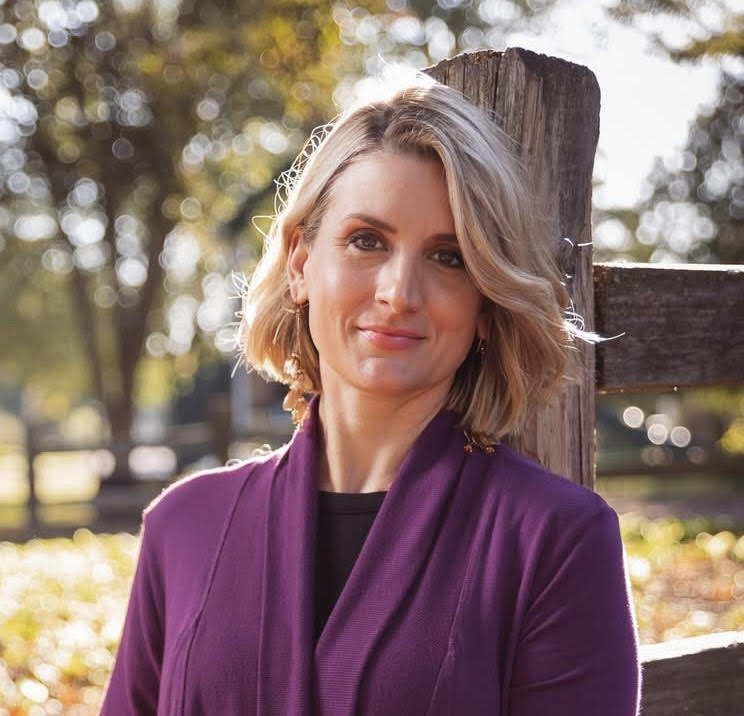Dr. Victoria Burns: Why I Do This Work



Caroline Beidler, MSW is an author, speaker, and the Managing Editor of Recovery.com. She writes about topics related to addiction, mental health, and trauma recovery, informed by her personal experience and professional expertise.




Caroline Beidler, MSW is an author, speaker, and the Managing Editor of Recovery.com. She writes about topics related to addiction, mental health, and trauma recovery, informed by her personal experience and professional expertise.
“Sometimes, all it takes to change someone’s life is letting them see what’s possible.”
Have you ever thought about how your story might impact someone else? Not in a crazy, world-changing way—but in a smaller, personal way that could inspire someone to imagine a better life. It’s an impactful idea, and Dr. Victoria Burns is living proof.
Years ago, addiction, trauma, and chronic illness weighed on her life. Recovery felt out of reach, almost like a dream. But one moment changed everything—a single conversation with a stranger that planted a seed of hope in her mind.
A Night That Changed Everything
Let’s go back to a Halloween party during Dr. Burns’ time as a doctoral student at McGill University. She met Ben, another student, who stood out with his kindness and easygoing nature. When he offered her a drink from the punch bowl but didn’t take one himself, she asked why.
His answer was simple: “I’ve been in recovery for 25 years.”
That’s it. No lectures, no judgment—just honesty. But those words stuck with her. He was the first person she’d ever met who talked openly about being in recovery, and it gave her a glimmer of something she hadn’t thought possible.
Months later, at her lowest, she remembered Ben’s words. That tiny, offhanded comment became a lifeline she could hold onto as she started her own journey to recovery.
How Stories Shape Us
Ben’s openness revealed a simple but impactful truth: stories shape the way we see the world—and ourselves. As Nigerian poet Ben Okri once said, “We live by stories; we also live in them. If we change the stories we live by, we change our lives.”
For Dr. Burns, Ben’s story gave her permission to rewrite her own. Inspired by his example, she embraced recovery and found a new sense of purpose. Today, she’s not just thriving—she’s helping others do the same. You can too.
Creating a Community of Hope
Dr. Burns has dedicated her career to ensuring others feel that same spark of hope. She founded the UCalgary Recovery Community (UCRC) and Recovery on Campus (ROC) Alberta—programs that give people in recovery a place to connect, find support, and meet their own “Bens.”
Through her work, she’s showing people that recovery isn’t just achievable: it’s worth celebrating. She emphasizes that visibility matters, when others see what’s possible, it opens the door for them to create and imagine better future.
How You Can Be a Ben
You don’t need to start big to make a difference. Small actions can and do have a big impact, just like Ben’s did. Here are a few ways you can support recovery in many ways and inspire hope to those who need it most:
Be Open: If you’re comfortable, share your story. You never know who might need to hear it.
Build Connection: Find or create spaces where recovery is supported and celebrated. Community makes all the difference.
Challenge Stigma: Speak out against harmful stereotypes about addiction. Education and empathy can break down barriers.
Offer Encouragement: A kind word or a simple gesture can mean more than you realize.
We All Have Struggles
Recovery may look different for everyone, but the underlying truth is the same: we all face challenges. And when we share our stories, we remind each other that no one has to go it alone.
Dr. Burns puts it best: “Ben’s decision to recover out loud changed my story. If we all strive to ‘Be a Ben,’ we can help others imagine a brighter future.”
Our Promise
How Is Recovery.com Different?
We believe everyone deserves access to accurate, unbiased information about mental health and recovery. That’s why we have a comprehensive set of treatment providers and don't charge for inclusion. Any center that meets our criteria can list for free. We do not and have never accepted fees for referring someone to a particular center. Providers who advertise with us must be verified by our Research Team and we clearly mark their status as advertisers.
Our goal is to help you choose the best path for your recovery. That begins with information you can trust.





